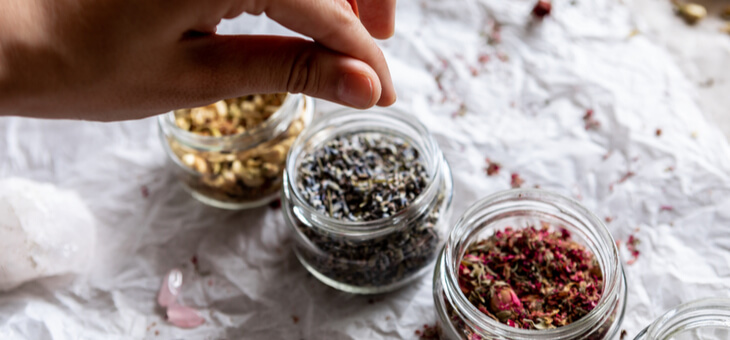Inside just about every Australian pantry is a range of dried herbs and spices. They’re a healthy way to pack your food full of flavour. But could there be more in the jar than you were expecting?
Herbs and spices can transform your meals from drab and tasteless into delicious dishes. They’re often good for you, too. Chilli can boost your metabolism and keep blood vessels healthy. Rosemary is rich in antioxidants. Turmeric may even help relieve pain.
What you’re probably not envisaging is dumping a load of heavy metals into your dinner.
A Consumer Report sampled 126 American dried herbs and spices products. More than a third contained dangerous levels of arsenic, lead and cadmium.
The report found thyme and oregano were the most contaminated products. All five thyme brands tested, and all seven oregano brands, showed high levels of heavy metal contamination.
What can heavy metals do to your body?
Frequent exposure to even small amounts of lead, arsenic, cadmium, and other heavy metals, is dangerous to humans because it’s difficult for the body to break down or excrete them.
Over time, heavy metals can lead to central nervous system problems. It can also lead to hypertension and can damage the kidneys and immune system.
The list of heavy metals also includes mercury, chromium, copper, zinc, nickel, selenium, silver, antimony and manganese.
“When people think about heavy metals in their diet it’s probably the lead in their drinking water,” says Consumer Report’s food and safety director, Dr James E Rogers.
“But our tests show that dried herbs and spices can be a surprising, and worrisome, source.”
Read: Aussie supermarkets named and shamed as junk food pushers
Are there heavy metals in Aussie herbs?
Advocacy group CHOICE tested 70 different dried herb and spice products on sale in Australia.
CHOICE looked at products from 12 brands. Herbs and spices tested included basil, cumin, ginger, oregano, paprika, thyme and turmeric.
These dried herbs and spices contained the least amount of heavy metals:
- Spice & Co Ground Ginger
- Masterfoods Cumin
- (Aldi) Stonemill Basil
- Coles Paprika
- Spice & Co Oregano
- G-Fresh Gound Ginger
- Woolworths Thyme.
All samples contained traces of lead. Eighty-six per cent contained arsenic. Others had traces of antimony, cadmium and mercury.
How does contamination occur?
Metals can be transferred into the product during the manufacturing process. This can occur through natural contamination through the air or through human error.
The many steps these products take along the supply chain, from farm to supermarket, also present opportunities for metal contamination.
Metal contamination in dried herbs and spices in Australia is uncommon. However, some fresh produce grown in Australia is susceptible to higher metal levels.
A Sydney University study found vegetable crops grown near metal smelting facilities contain alarming levels of cadmium and lead. Another study from the University of Technology Sydney (UTS) found high levels of more than eight different metals in Australian rice brands.
“In Australian-grown rice varieties, the concentrations of heavy metals were considerably higher in brown rice varieties than white rice varieties, indicating Australian brown rice as a potential source of dietary heavy metals for Australian consumers,” the UTS study found.
The Food Standards Australia New Zealand (FSANZ) regulates acceptable levels of trace metals in foods. Certain metals are necessary for human health in small amounts but can become toxic at higher levels.
“Copper, selenium and zinc are elements that are essential for health but they can be toxic when exposures exceed certain levels,” FSANZ says.
“Recommended daily intakes (RDIs) are set for selenium and zinc at levels sufficient to meet the needs of the majority of the healthy population (i.e. to prevent deficiency). There is no RDI for copper.”
Do you use a lot of dried herbs and spices in your cooking? Are you concerned about contamination from metals? Let us know in the comments section below.
If you enjoy our content, don’t keep it to yourself. Share our free eNews with your friends and encourage them to sign up.

